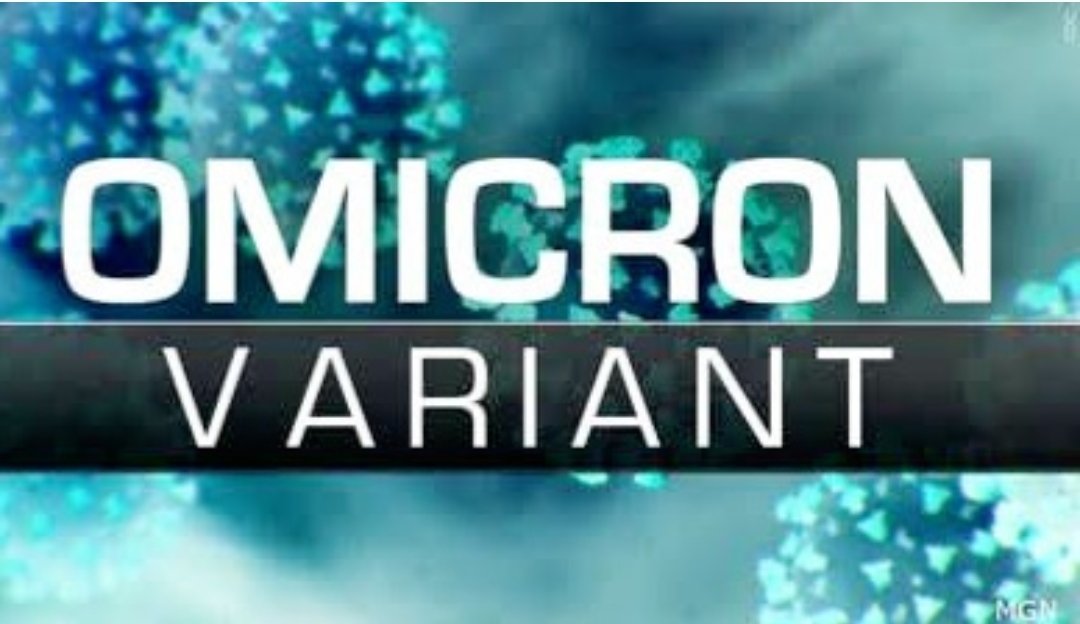Features
All you need to know about The Omicron COVID-19 Variant

The SARS-CoV-2 Omicron variant is a variant of SARS-CoV-2, the virus that causes COVID-19 which was first reported to the World Health Organization (WHO) from South Africa on 24 November 2021.
The variant first identified as B.1.1.529, has been renamed the Omicron variant, and the World Health Organization has deemed it a variant of concern. Omicron was first identified in South Africa where it has been spreading quickly and it is starting to see cases be identified around the world. Two cases in the UK as well as a case in Hong Kong were in travelers who were in South Africa recently. Other cases have appeared in Australia, Germany, Israel, Italy, and the Czech Republic.
The variant has an unusually large number of mutations, several of which are novel and several of which affect the spike protein used for most vaccine targeting at the time of its discovery.
This level of variation has led to concerns regarding transmissibility, immune system evasion, and vaccine resistance. As a result, the variant was quickly designated as being “of concern”, and travel restrictions were introduced by several countries to limit or slow its international spread.

Symptoms of The Omicron COVID-19 Variant
No unusual symptoms have yet been associated with the variant and, as with other variants, some individuals are asymptomatic.
Angelique Coetzee, chair of the South African Medical Association, said she had first encountered the variant in patients who had fatigue, aches and pains, but no cough or change in sense of smell or taste.
Fergus Walsh wrote, “South Africa has a young population and it is encouraging that doctors there are reporting that Omicron is causing mild symptoms with no increase in hospital admissions. But we need to see what happens when the variant moves into older age groups who are the most vulnerable to Covid.”
However, in an update on the variant, the World Health Organization stated “Preliminary data suggests that there are increasing rates of hospitalization in South Africa”, even if it has not been determined that this is attributed to this specific variant.

Prevention of The Omicron COVID-19 Variant
One of the most effective ways to protect yourself and others is to make sure you are up to date with your COVID-19 vaccinations. Keep up COVIDSafe behaviors like good hand washing, cough and sneeze hygiene, and getting tested if you have any symptoms of COVID-19. See more on how to protect yourself and others.
As with other variants, the WHO recommended that people continue to keep enclosed spaces well ventilated, avoid crowding and close contact, wear well-fitting masks, clean hands frequently, and get vaccinated.
On 26 November, BioNTech said it would know in two weeks whether the current vaccine is effective against the variant and that an updated vaccine can be shipped in 100 days if necessary. AstraZeneca, Moderna and Johnson & Johnson were also studying the variant’s impact on the effectiveness of their vaccines.
On the same day, Novavax stated that it was developing an updated vaccine for the Omicron variant, which the company expected to be ready for testing and manufacturing within a few weeks. On 29 November, Sinovac said it can quickly mass-produce an inactivated vaccine against the variant and that it is monitoring studies and collecting samples of the variant to determine if a new vaccine is needed. The Gamaleya Institute said that Sputnik Light should be effective against the variant, that it would begin adapting Sputnik V, and that a modified version could be ready for mass production in 45 days.

On 29 November, the WHO said cases and infections are expected among those vaccinated, albeit in a small and predictable proportion.
The WHO asked nations to do the following:
- Enhance surveillance and sequencing efforts to better understand circulating SARS-CoV-2 variants.
- Submit complete genome sequences and associated metadata to a publicly available database, such as GISAID.
- Report initial cases/clusters associated with virus-of-concern infection to WHO through the IHR mechanism.
- Where capacity exists and in coordination with the international community, perform field investigations and laboratory assessments to improve understanding of the potential impacts of the virus of concern on COVID-19 epidemiology, severity, effectiveness of public health and social measures, diagnostic methods, immune responses, antibody neutralization, or other relevant characteristics.
Treatment and Diagnosis of The Omicron COVID-19 Variant
Corticosteroids and IL6 receptor blockers are known to be effective for managing patients with severe COVID-19. The impact on the effectiveness of other treatments is currently being assessed.
Current PCR tests can detect the variant. Some laboratories have indicated that a widely used PCR test does not detect one of the three target genes. Just as with the Alpha variant, this partial detection (“S gene target failure”) can serve as a marker for the variant, however. Rapid antigen tests are most likely not affected.































